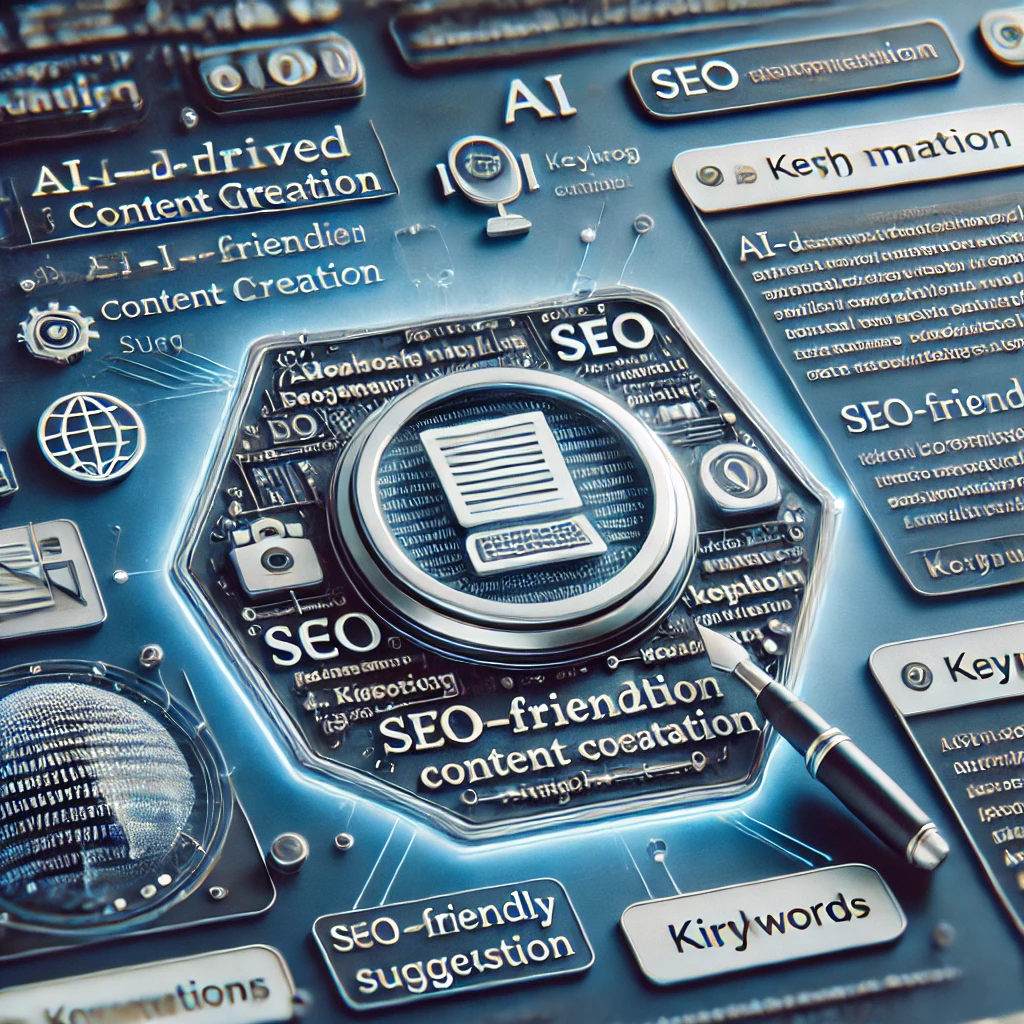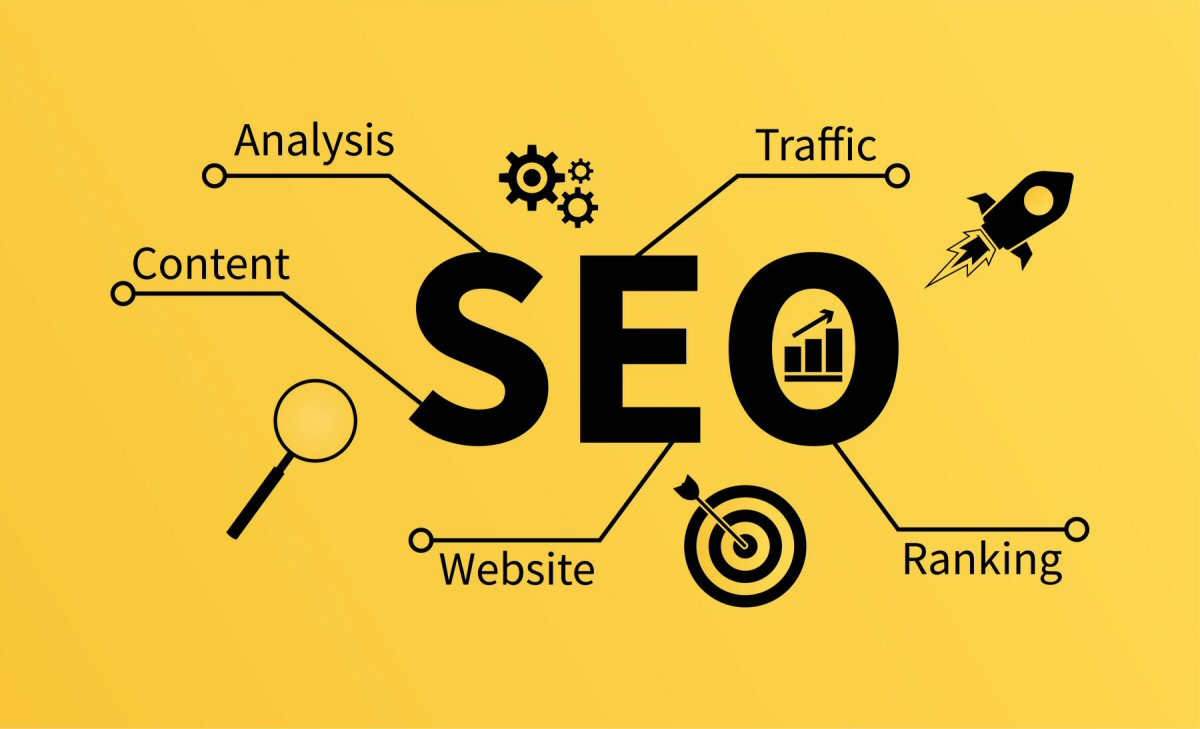How to Improve SEO Through AI: A Comprehensive Guide
In today's digital age, mastering Search Engine Optimization (SEO) is crucial for businesses and individuals alike. SEO helps your content rank higher in search engine results, driving more traffic to your website. But with ever-evolving algorithms and increased competition, staying ahead can be challenging. That's where Artificial Intelligence (AI) comes into play. AI has revolutionized the way SEO is done, offering tools and techniques that were once unimaginable. In this post, we'll explore how to improve SEO through AI, with a focus on the keyword "How to do SEO."
Understanding SEO and Its Challenges
SEO involves optimizing your website and content to rank higher in search engine results pages (SERPs). This involves a combination of on-page and off-page strategies, including keyword optimization, content creation, link building, and technical SEO. The ultimate goal is to increase visibility and drive organic traffic.
However, traditional SEO methods have their limitations:
- Manual Keyword Research: Finding the right keywords to target can be time-consuming and requires constant updates.
- Content Optimization: Writing content that is both user-friendly and SEO-optimized is a balancing act.
- Link Building: Acquiring quality backlinks is often a challenging and lengthy process.
- Algorithm Updates: Search engines frequently update their algorithms, making it difficult to maintain high rankings.
How AI is Transforming SEO
AI offers solutions to these challenges by automating tasks, providing data-driven insights, and improving accuracy. Let's dive into how AI can help you improve your SEO efforts.
1. AI-Powered Keyword Research
One of the most critical aspects of SEO is keyword research. Traditionally, this involved using tools like Google Keyword Planner to find relevant keywords. However, AI has taken keyword research to the next level.
AI Tools for Keyword Discovery: AI-powered tools like SEMrush and Ahrefs use machine learning algorithms to analyze search data and predict trends. They can identify long-tail keywords and suggest related keywords that you might not have considered. These tools also provide insights into keyword difficulty, search volume, and potential traffic.
Natural Language Processing (NLP): AI-driven NLP tools can understand the context of keywords and user intent. This allows you to create content that aligns more closely with what users are searching for, improving your chances of ranking higher.
Creating high-quality, SEO-friendly content is essential for ranking well. AI can assist in both creating and optimizing content.
AI Writing Assistants: Tools like Jasper AI and Copy.ai use AI to generate content based on your input. These tools can help you create blog posts, product descriptions, and even social media content that is optimized for SEO. They analyze your target keywords and suggest how to incorporate them naturally into your content.
Content Optimization: AI tools like Surfer SEO and MarketMuse analyze top-ranking pages for your target keywords and provide recommendations for optimizing your content. They look at factors like keyword density, readability, and content structure to help you create content that is more likely to rank well.
On-page SEO involves optimizing individual web pages to rank higher and earn more relevant traffic. Technical SEO focuses on the backend of your website, ensuring that search engines can crawl and index your content effectively.
AI for On-Page SEO: AI tools like Yoast SEO and Rank Math provide real-time SEO analysis as you create content. They offer suggestions for improving meta tags, headings, image alt text, and internal linking. These tools also analyze readability and suggest ways to make your content more user-friendly.
AI for Technical SEO: Tools like DeepCrawl and Screaming Frog use AI to crawl your website and identify technical issues that could affect your SEO. They can detect broken links, duplicate content, and slow page load times, offering actionable insights to fix these issues. AI can also help with schema markup, ensuring that your content is properly structured for search engines.
4. Link Building with AI
Building quality backlinks is one of the most challenging aspects of SEO, but it's also one of the most important. AI can streamline the link-building process by identifying opportunities and automating outreach.
AI-Driven Link Building Tools: Tools like Pitchbox and BuzzStream use AI to find relevant websites for backlink opportunities. They analyze the authority and relevance of potential sites and can even automate the outreach process, sending personalized emails to site owners.
Content Suggestions for Backlinks: AI tools can analyze the content of top-ranking pages and suggest topics that are more likely to attract backlinks. This helps you create content that naturally earns links, improving your site's authority and ranking.
5. Analyzing Competitors
Understanding what your competitors are doing is crucial for staying ahead. AI tools can provide in-depth analysis of your competitors' SEO strategies.
AI Competitor Analysis Tools: Tools like SpyFu and SEMrush use AI to analyze your competitors' keywords, backlinks, and content strategies. They can show you which keywords your competitors are ranking for, where their backlinks are coming from, and what content is driving the most traffic.
Actionable Insights: With this data, you can identify gaps in your own strategy and find opportunities to outperform your competitors. AI tools can also predict trends in your industry, helping you stay ahead of the curve.
6. Predictive Analytics for SEO
One of the most powerful applications of AI in SEO is predictive analytics. This involves using historical data to predict future trends, helping you stay ahead of the competition.
AI-Powered Predictive Analytics Tools: Tools like BrightEdge and CognitiveSEO use AI to analyze search trends, user behavior, and algorithm changes. They can predict which keywords will become more popular, which content will perform best, and how your rankings are likely to change over time.
Proactive SEO Strategy: By using predictive analytics, you can create content and optimize your website before trends become mainstream. This proactive approach can give you a significant advantage over competitors who are only reacting to changes.
Search engines prioritize websites that offer a good user experience. AI can help you improve UX, which in turn boosts your SEO.
AI-Driven UX Tools: Tools like Hotjar and Crazy Egg use AI to analyze user behavior on your website. They can show you where users are clicking, how far they scroll, and which pages they spend the most time on. This data helps you optimize your site's layout, navigation, and content to improve user engagement.
Voice Search Optimization: As voice search becomes more popular, optimizing for it is essential. AI tools can help you understand the natural language patterns users employ when using voice search and adjust your content accordingly.
Conclusion
AI is transforming the way SEO is done, offering tools and techniques that were once unimaginable. From keyword research and content creation to technical SEO and link building, AI can help you improve your SEO efforts and stay ahead of the competition. By leveraging AI, you can optimize your website more efficiently, predict trends, and create a user-friendly experience that drives traffic and boosts your rankings.Whether you're new to SEO or an experienced professional, understanding "How to do SEO" with AI is essential in today's digital landscape. By incorporating AI into your SEO strategy, you can achieve better results in less time, giving you a competitive edge in the ever-changing world of search engines








Comments
Post a Comment